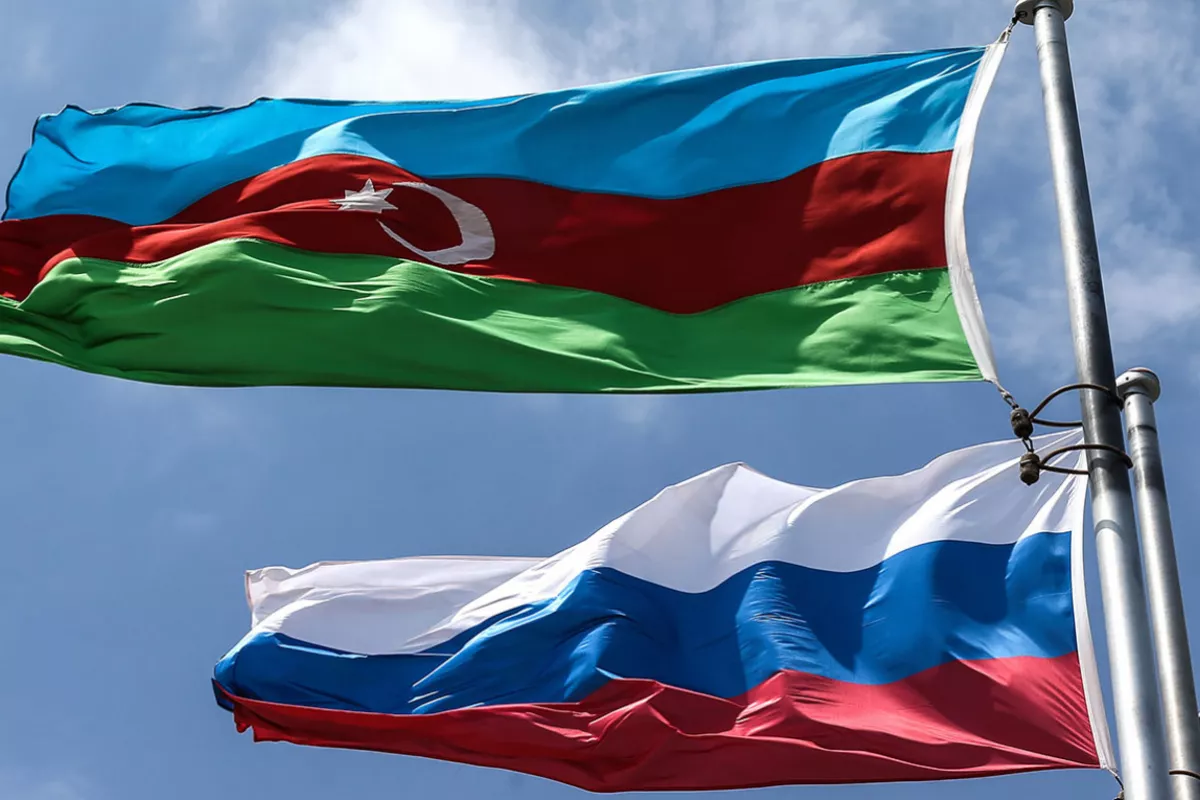
photo: The Moscow Times
Tensions are once again rising in the South Caucasus. Relations between Azerbaijan and Russia-once held up as a model of strategic partnership-have recently begun to cool rapidly. Against this backdrop, we’re hearing familiar rhetoric: historical distortions, claims of so-called “Russophobia” in Azerbaijani society, attacks on national identity, and attempts to sow distrust between peoples who have lived side by side for centuries. The question is obvious: who benefits from this?
There’s every reason to believe that the South Caucasus is once again in the crosshairs of those who are more interested in chaos than in peace. And this is hardly a new story.
In 1985, Mikhail Gorbachev came to power in the USSR-a man backed not just by the Communist Party, but by informal networks of influence. He soon began fueling separatism and nationalism, amplified from abroad. Under the guise of “restructuring,” there was a campaign to erode historical memory, distort identities, and incite hostility. Eventually, this led to the disintegration of the Soviet Union into separate states, often drawn along ethnic lines.
In many of these new republics, a wave of aggressive nationalism and Russophobia followed. But Azerbaijan stood out as a rare exception. No ethnic or religious groups were discriminated against. Russian-language schools, university departments, and branches of Moscow State University and Sechenov Medical University continue to operate. The Russian Orthodox Church enjoys equal rights alongside other religious denominations. This is not symbolic-it is a matter of state policy rooted in mutual respect.
For decades, relations between Baku and Moscow were stable and productive. But recently, some forces have begun trying to undermine that. We’ve seen a growing wave of articles in Russian media that distort Azerbaijan’s history, accuse it of intolerance, and promote the false narrative of “institutional Russophobia.”
One particularly absurd claim is that Azerbaijanis as a people never existed. This argument is based on a bureaucratic detail: that in the 1897 Russian Empire census, Azerbaijani citizens were listed as “Caucasian Tatars.” But this reflects nothing more than the classification habits of Russian officials at the time. All Turkic-speaking peoples were labeled “Tatars,” Germans were simply called “Nemtsy” (from “mute”), and Ukrainians were recorded as “Little Russians.” These were bureaucratic shortcuts, not reflections of national self-identification.
The historical truth is this: the territory of present-day Azerbaijan has been inhabited for millennia by the descendants of dozens of ancient tribes. The names of the land may have changed, but the cultural and ethnic roots of its people remained strong. In the 16th-17th centuries, the powerful Safavid Empire emerged here, built on an Azerbaijani core.
Azerbaijanis played an active and loyal role in the Russian Empire. Generals of Azerbaijani origin fought bravely in the Russo-Turkish wars and other campaigns. Ismail Khan Nakhchivanski, for example, led the defense of Bayazet in 1877-78 and was the only officer in that operation awarded the Order of St. George. In total, around 50 Azerbaijani generals served in the Imperial Army.
After the collapse of the Russian Empire, the Azerbaijan Democratic Republic was proclaimed on May 28, 1918. In just 23 months, it built an inclusive system that guaranteed equal rights for all its peoples. A parliamentary minority faction represented virtually every ethnic and religious community. Education in minority languages was state-funded and protected by law.
With the establishment of Soviet power, Azerbaijan became a key contributor to the USSR’s oil and gas industry. Azerbaijani leaders such as Nariman Narimanov (Chairman of the All-Russian Central Executive Committee), Sabit Orujov (Minister of Oil and Gas Industry), Kerim Kerimov (founding member of the Soviet space program), and Heydar Aliyev (Politburo member and Deputy Prime Minister of the USSR) played vital roles in Soviet state-building.

photo: Azernews
During World War II, Azerbaijan’s contribution to the victory over fascism was enormous. Out of a population of 3.4 million, nearly 700,000 were mobilized to the front. Azerbaijani soldiers fought bravely in the battles of Brest Fortress, Leningrad, Moscow, Stalingrad, the Caucasus, the Kursk salient, and in Berlin. More than 400,000 were awarded medals and decorations. Forty-three were named Heroes of the Soviet Union, 14 of them posthumously. Major General Azi Aslanov was twice named Hero of the Soviet Union. The very first Azerbaijani Hero of the Soviet Union was Senior Sergeant Israfil Mammadov.
All this proves one undeniable fact: the Republic of Azerbaijan is not some historical accident. It is a sovereign state with deep roots, a rich past, and a natural right to an independent future. The attempt to present it as artificial or illegitimate is nothing more than a political tool wielded by those who fear a strong, independent Azerbaijan.
It is no coincidence that today we see renewed attempts to drive a wedge between Azerbaijan and Russia. Such provocations are not rooted in facts-they are part of a broader strategy aimed at destabilizing the South Caucasus. Why? Because peace in the region is a threat to those who profit from conflict.
Azerbaijan has shown, time and again, that it embraces multiculturalism, respects its past, and defends its sovereignty with dignity. The real question is whether others are willing to respect that, or whether we are once again seeing plans-drawn in quiet offices-to ignite a new wave of instability in the Caucasus.
The South Caucasus needs peace. And to those who seek conflict-we’ve been down that road before. We won’t go there again.
By Moses Becker
Share on social media